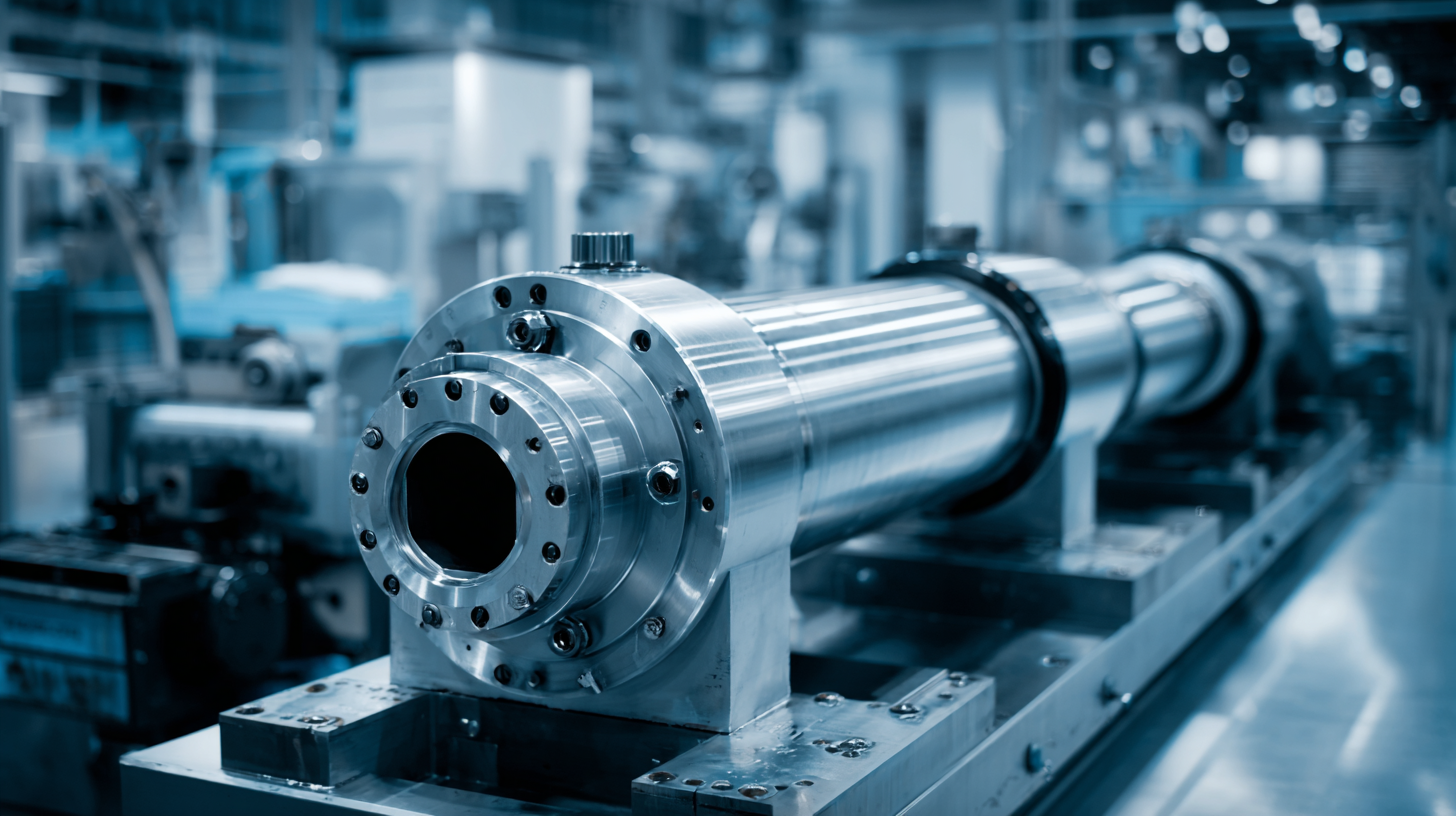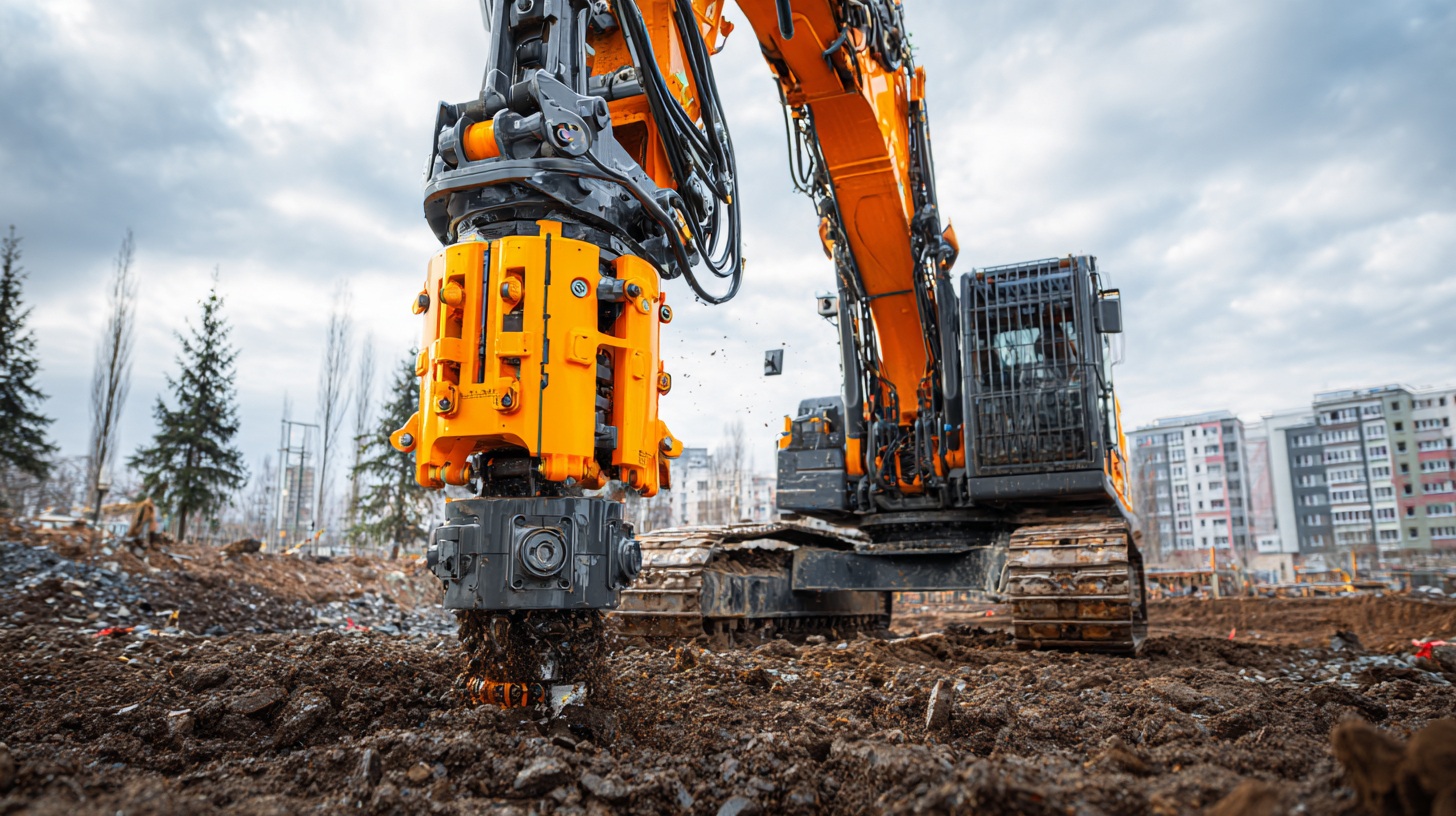- Our Products
- Repairs & Service
- Custom Design
- Blog
- About Us
- Resources
- Industries
- Contact Us
- Contact Bestrei UK
- Compliments / Complaints
- Global Supply
The rapidly evolving landscape of various industries has necessitated a deeper exploration of Hydraulic Services, which have become integral to enhancing efficiency and sustainability. According to a recent report by the Hydraulic Institute, the global hydraulic equipment market is projected to reach $73 billion by 2026, driven by advancements in technology and innovative applications across sectors such as construction, manufacturing, and agriculture. These services not only optimize operational performance but also reduce environmental impacts, aligning with the increasing demand for eco-friendly solutions. As industries continue to innovate, understanding the unique applications of hydraulic services will be crucial for companies aiming to maintain their competitive edge and drive future growth.

This blog will delve into the innovative hydraulic solutions tailored for specific industry needs, showcasing how they can transform operations and contribute to a more sustainable future.
Innovative hydraulic services in the manufacturing sector have been at the forefront of driving efficiency and cost savings. According to a recent report by the International Fluid Power Society, the adoption of advanced hydraulic systems can improve operational efficiency by up to 30%, allowing manufacturers to streamline processes and reduce downtime. With increasing competition and rising operational costs, many industries have turned to hydraulic solutions to enhance productivity. For instance, automated hydraulic presses and robotic systems utilize hydraulic power to achieve precise movements, thus minimizing material waste and optimizing resource utilization.
Furthermore, the cost-effectiveness of innovative hydraulic services cannot be overlooked. A study by MarketsandMarkets highlights that integrating smart hydraulic systems can lead to cost reductions of around 25% in maintenance expenses over traditional systems. This is largely attributed to predictive maintenance capabilities, which enable early detection of issues before they escalate, ultimately prolonging equipment life and enhancing reliability. As manufacturers seek to maintain their competitive edge, embracing these innovative hydraulic solutions is proving to be a pivotal strategy in achieving sustainable growth and profitability.

Hydraulic applications in the construction industry play a pivotal role in enhancing safety and productivity. According to a report by the International Hydraulic Association, the use of hydraulic systems in construction can lead to a 30% increase in operational efficiency. This efficiency boost stems from the ability of hydraulic equipment to easily manage heavy loads and execute complex tasks that would be arduous or impossible with manual labor alone. The implementation of hydraulic cranes, excavators, and forklifts not only accelerates project timelines but significantly reduces the risk of worker injury associated with heavy lifting and repetitive strain.

Moreover, recent advancements in hydraulic technology have introduced innovative solutions that further improve safety standards on construction sites. For instance, smart hydraulic systems equipped with real-time monitoring and diagnostic capabilities can alert operators to potential issues before they escalate, significantly decreasing the likelihood of accidents. A study by the European Construction Safety Network reported that sites using advanced hydraulic technology experienced a 40% reduction in workplace injuries. By integrating these systems, construction companies are not only enhancing productivity but also creating a safer environment for workers, ultimately leading to more sustainable operations in an increasingly competitive market.
The increasing emphasis on sustainability has propelled hydraulics into the spotlight, particularly in the renewable energy sector. Hydraulic systems, known for their efficiency and power, are crucial in wind and solar energy projects. For instance, hydraulics are employed in the pitch control of wind turbines, ensuring optimal blade angles for maximum energy capture while adapting to varying wind conditions. This precision not only boosts energy output but also enhances the longevity of the turbines, making hydraulic technology indispensable in this renewable landscape.
Moreover, hydraulics play a significant role in the management of solar panel installations. The use of hydraulic actuators allows for the adjustment of panel angles to track the sun, maximizing solar gain throughout the day. This dynamic capability contributes to increased energy production and optimizes the overall efficiency of solar farms. By integrating hydraulic systems with renewable energy technologies, industries are not only promoting sustainability but also paving the way for innovative solutions that harness natural resources more effectively.
In the ever-evolving world of agriculture, cutting-edge hydraulic solutions are transforming traditional farming practices. Precision hydraulics are emerging as essential tools, enabling farmers to optimize their operations and increase crop yields.
For instance, advanced hydraulic systems allow for more accurate control of planting equipment, ensuring seeds are sown at the right depth and spacing. This precision not only minimizes seed wastage but also maximizes the potential for healthy crop growth.
Furthermore, hydraulic technology plays a vital role in enhancing the efficiency of irrigation systems. By utilizing variable rate irrigation, farmers can apply water precisely where it’s needed, reducing waste and promoting better soil moisture levels.
These innovations not only conserve water but also improve the overall health of the crops, supporting sustainable farming practices. As the agricultural sector continues to embrace these innovative hydraulic services, we are witnessing significant improvements in both yield and profitability, paving the way for a more sustainable future in food production.
Hydraulic systems play a pivotal role in revolutionizing transportation, driving efficiency and enhancing mobility across various sectors. By harnessing the power of hydraulics, industries such as logistics, public transport, and automotive are implementing innovative solutions to streamline operations. Advanced hydraulic mechanisms facilitate smoother operation in heavy-duty vehicles, enabling better load handling, improved braking systems, and reliable steering capabilities, all of which contribute to safer and more efficient transport services.
Tip: When considering hydraulic innovations for transportation, focus on scalability and adaptability. Evaluate hydraulic solutions that can integrate seamlessly with existing systems to maximize efficiency without significant overhaul costs.
Furthermore, the exploration of hydraulic technology extends to automated guided vehicles (AGVs) and smart logistics frameworks. Such systems utilize hydraulics not just for propulsion, but also for precision in material handling and maneuverability. This innovative approach allows for real-time data analytics and enhances responsiveness in supply chain management, ensuring that logistics operators can meet evolving market demands.
Tip: Investing in training for operators on new hydraulic technologies can significantly minimize downtime. A well-informed team can not only ensure optimal operation but also contribute valuable feedback for ongoing improvements.
| Application Area | Innovation Description | Benefits | Industry Impact |
|---|---|---|---|
| Heavy-Duty Trucks | Adaptive hydraulic systems for real-time load adjustment | Improved fuel efficiency and load stability | Enhanced logistics capabilities |
| Public Transit | Hydraulic hybrid systems for buses | Reduced emissions and operating costs | Sustainable public transport solutions |
| Railways | Hydraulic braking systems for high-speed trains | Enhanced safety and responsiveness | Improved rail service reliability |
| Maritime Transport | Hydraulic systems for cargo handling in ports | Increased loading efficiency | Boosted port operations and logistics |
| Air Cargo | Hydraulic systems for cargo door automation | Faster loading and unloading times | Enhanced air freight efficiency |
Bestrei UK has a strong footprint across Europe
United Kingdom, Ireland, France, Germany, Norway, Finland Sweden, Spain, Italy